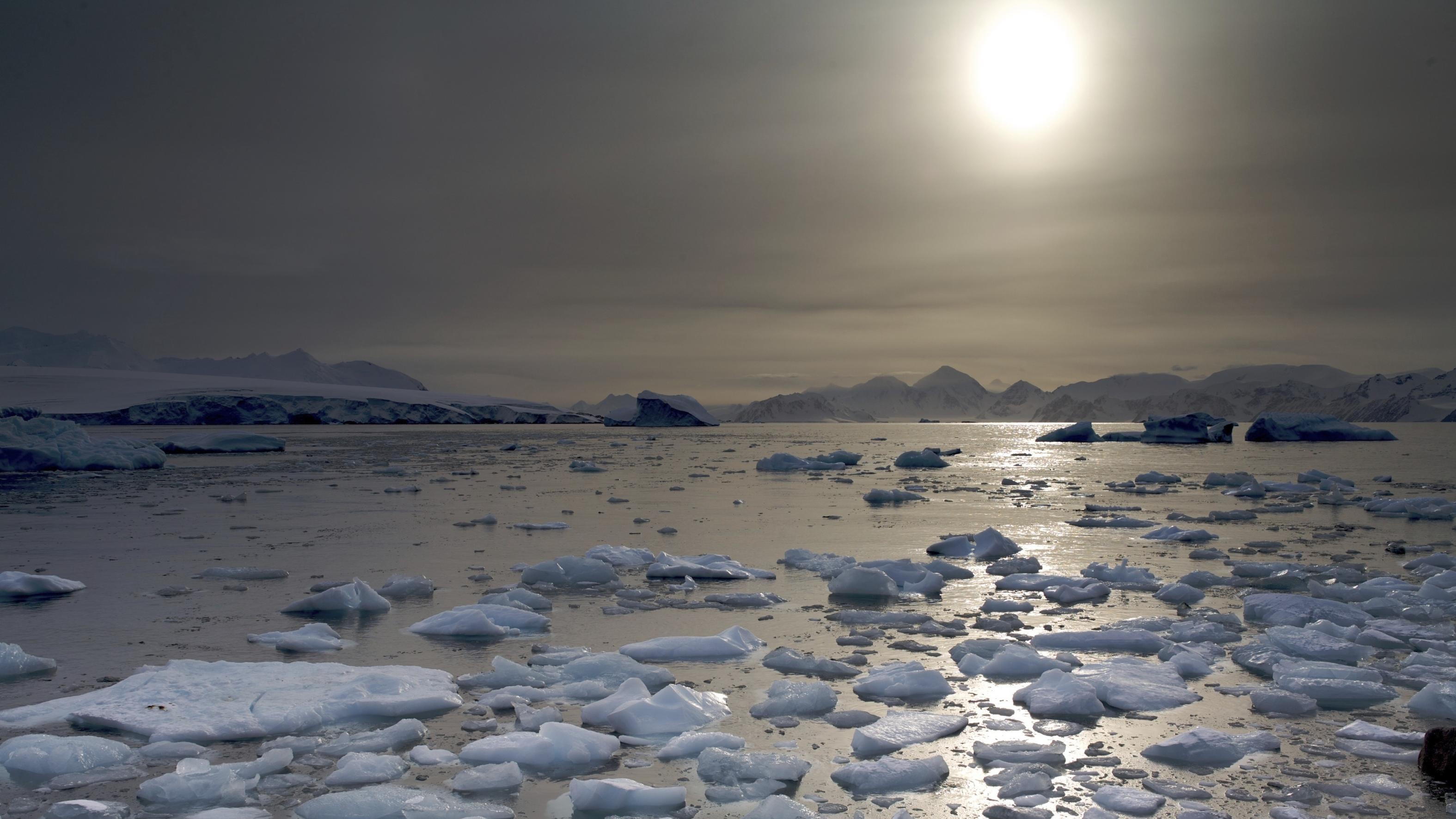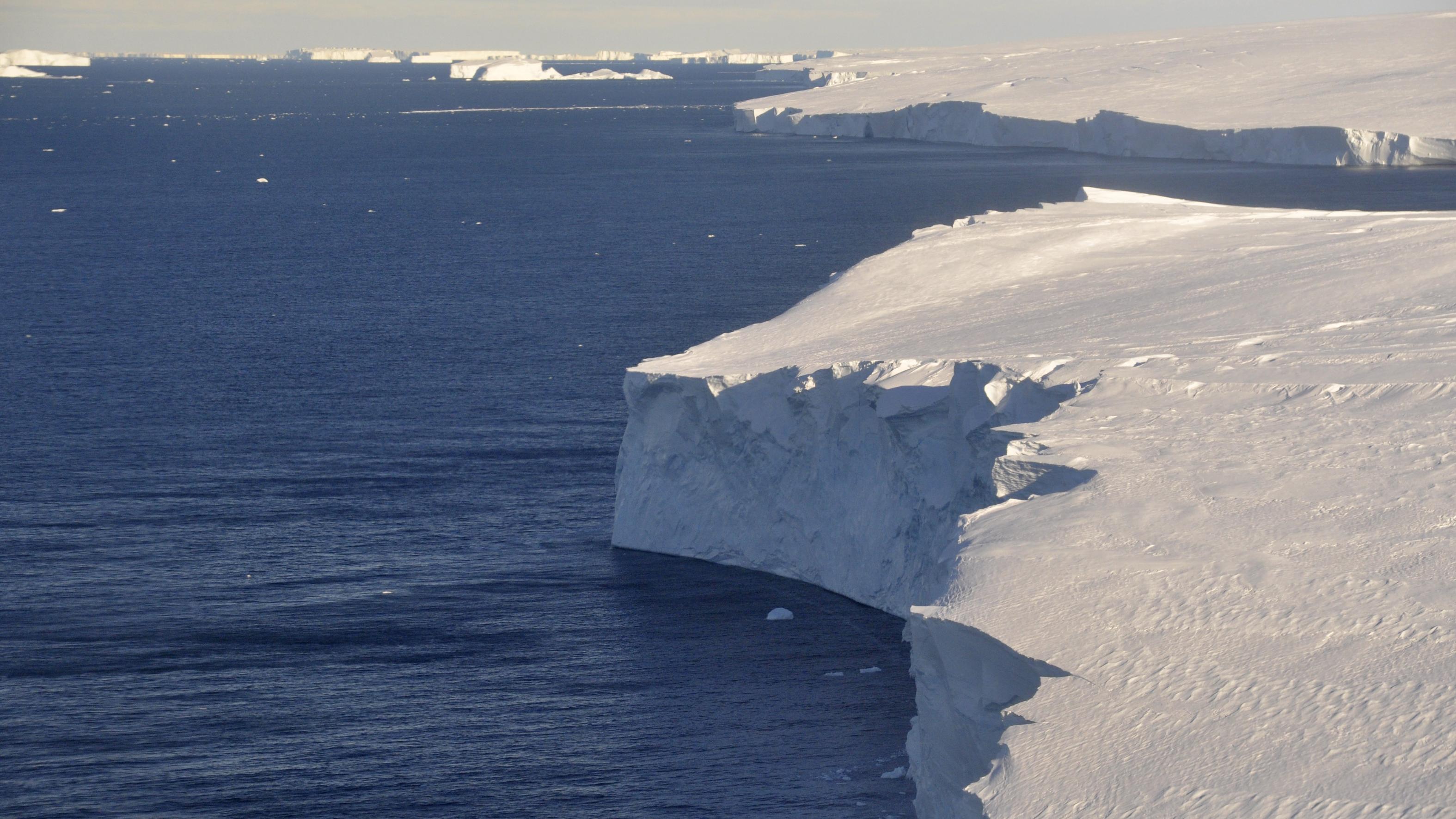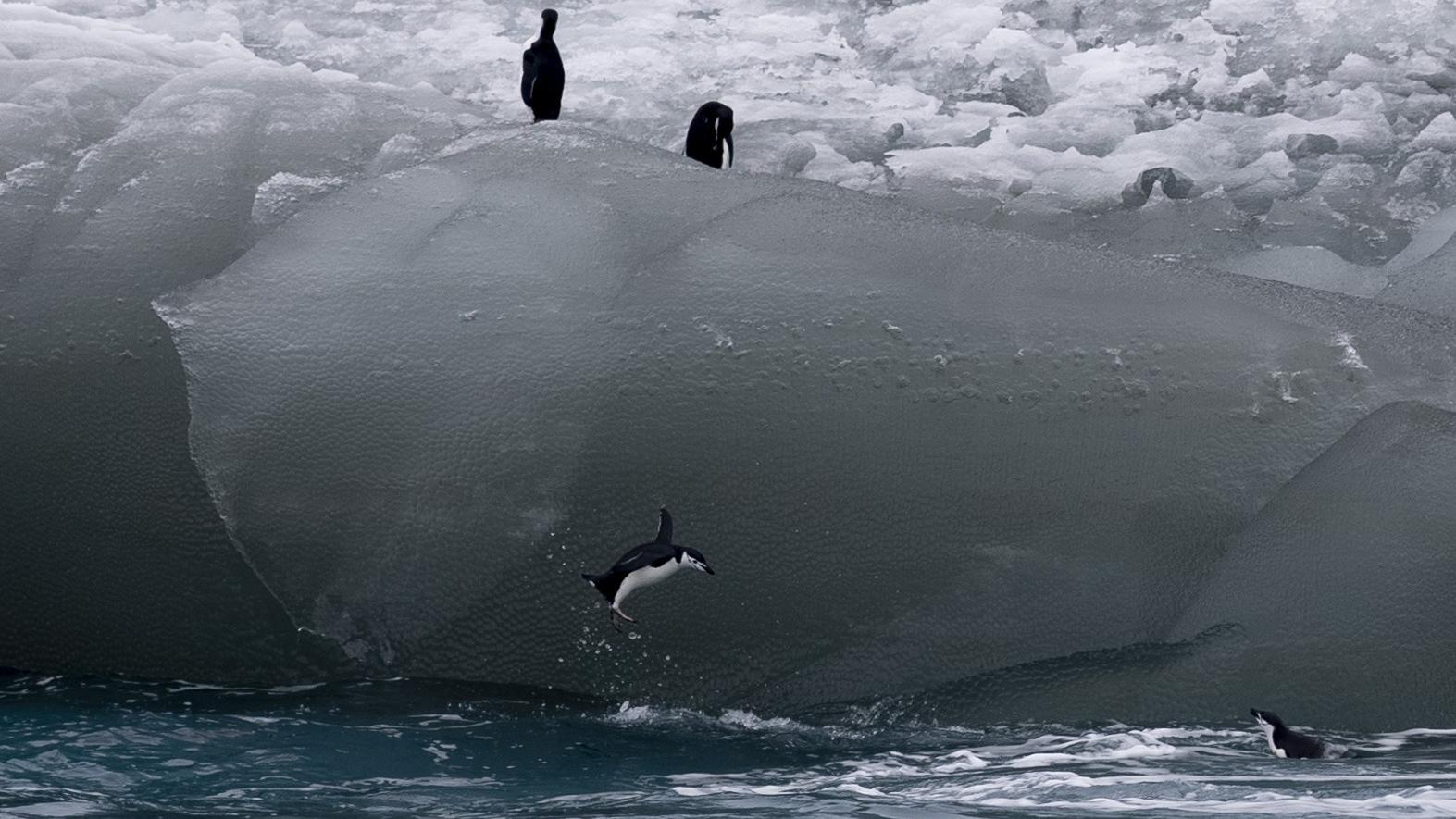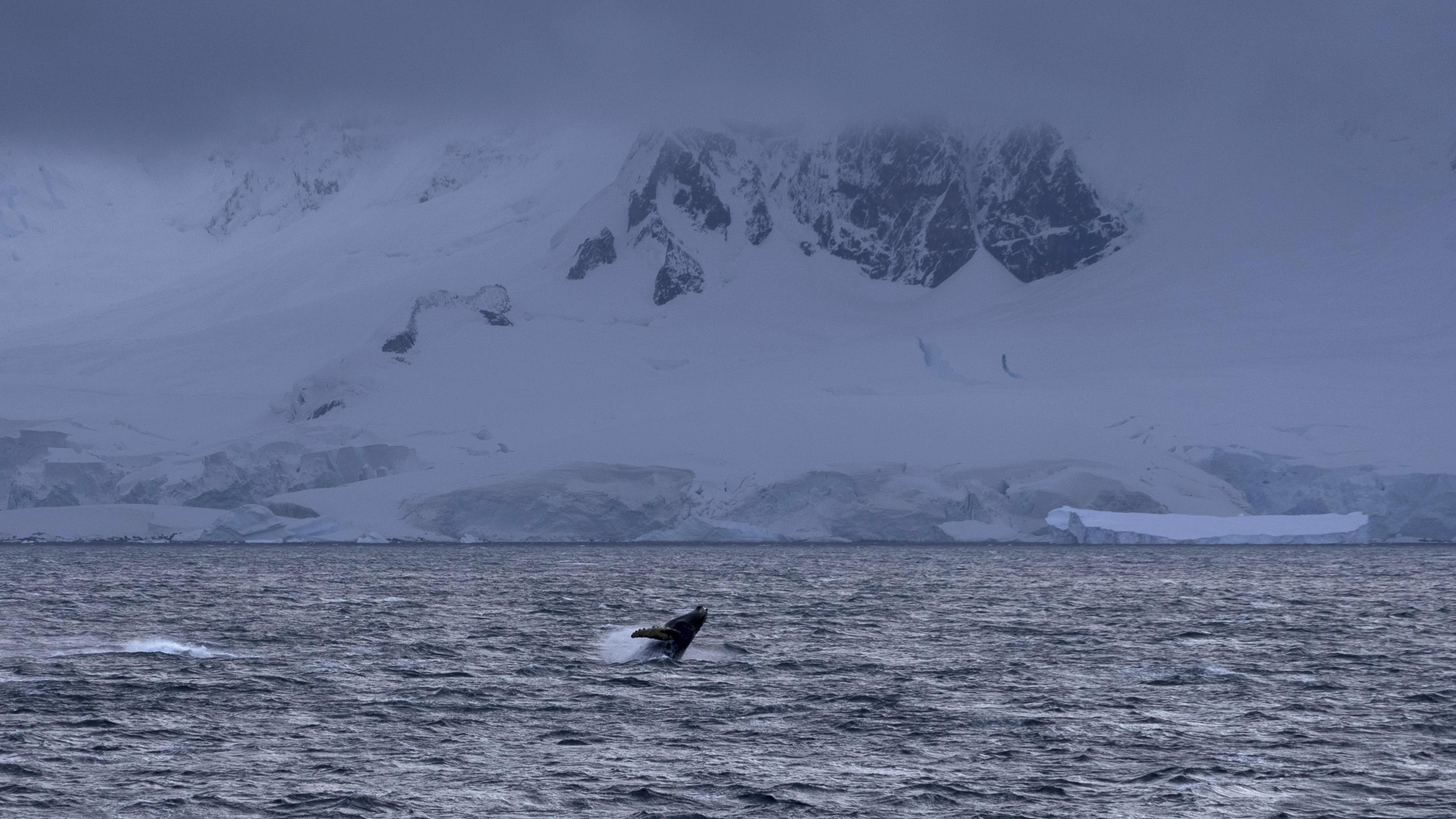 This photo released by Barbara Hernandez Antarctic and Southern Ocean Coalition (ASOC) shows Chilean swimmer Barbara Hernandez swimming in the Antarctic ocean in Greenwich Island, Antarctica on Feb 5, 2023. (PHOTO / AFP)
This photo released by Barbara Hernandez Antarctic and Southern Ocean Coalition (ASOC) shows Chilean swimmer Barbara Hernandez swimming in the Antarctic ocean in Greenwich Island, Antarctica on Feb 5, 2023. (PHOTO / AFP)
The West Antarctic Ice Sheet will continue to melt this century regardless of how much the world slashes planet-warming emissions, research from the British Antarctic Survey has found, locking in further sea level rise over the coming decades.
The study, published in the journal Nature Climate Change on Monday, found no matter the degree of warming this century, the melting of the West Antarctic Ice Sheet will speed up as warmer water in the Amundsen Sea erodes ice shelves bordering the ocean.
Researchers ran simulations on Britain's national supercomputer to assess increases in ocean temperatures under different warming scenarios, based on a single model
These ice shelves buttress ice further inland, acting as a cork in a bottle that stops their flow into the ocean.
READ MORE: Study: Climate change slowing Antarctic deep sea current
Even under the best-case scenario of 1.5 degrees Celsius (2.7 Fahrenheit) of warming above pre-industrial levels, ice would melt three times faster this century than it did last century.
"Reducing emissions can help to prevent the worst-case scenario of melting, but beyond that mitigation has a negligible impact," said lead author Kaitlin Naughten, an ocean-ice modeller at the British Antarctic Survey. "It appears we may have lost control".
The collapse of the West Antarctic Ice Sheet is one of nine global climate 'tipping points' scientists identified in 2009. The passing of these environmental red lines would be catastrophic for life on Earth.
An international team of scientists said in 2022 we may already have passed the point of no return for the West Antarctic Ice Sheet at just 1.1 C of warming above pre-industrial levels.
If the ice sheet were to fully melt, average global sea levels would rise by more than a metre.
Researchers ran simulations on Britain's national supercomputer to assess increases in ocean temperatures under different warming scenarios, based on a single model.
 This undated image provided by British Antarctic Survey, shows the North Cove, in Antarctic. (PHOTO / AP)
This undated image provided by British Antarctic Survey, shows the North Cove, in Antarctic. (PHOTO / AP)
The results "need to be treated carefully since different models and even ensembles of the same model can give different responses," said Tiago Segabinazzi Dotto, a senior research scientist at Britain's National Oceanography Centre, who was not involved in the study.
READ MORE: 'Warm water melts weak spots on Antarctica's Doomsday Glacier'
However, he noted the findings align with other research that suggests the imminent collapse of ice shelves in the Amundsen Sea. These include the Thwaites Ice Shelf which scientists said in February is seeing warm water intrude into its weakest spots.
 This file photo dated 2020 provided by the British Antarctic Survey shows the Thwaites glacier in Antarctica. (PHOTO / AP)
This file photo dated 2020 provided by the British Antarctic Survey shows the Thwaites glacier in Antarctica. (PHOTO / AP)
 A chipstrap penguin jumps from an iceberg into the Southern Ocean on March 9, 2023. (PHOTO / AP)
A chipstrap penguin jumps from an iceberg into the Southern Ocean on March 9, 2023. (PHOTO / AP)
 A whale breaches the surface of the Southern Ocean in front of mountains on the Antarctica Peninsula on March 15, 2023. (PHOTO / AP)
A whale breaches the surface of the Southern Ocean in front of mountains on the Antarctica Peninsula on March 15, 2023. (PHOTO / AP)
Ice across the White Continent is in trouble as climate change kicks into gear.
Antarctic Sea ice saw its lowest maximum extent on record this winter. And research published earlier this month found around 40 percent of Antarctica's ice shelves have shrunk significantly over the past 25 years.


